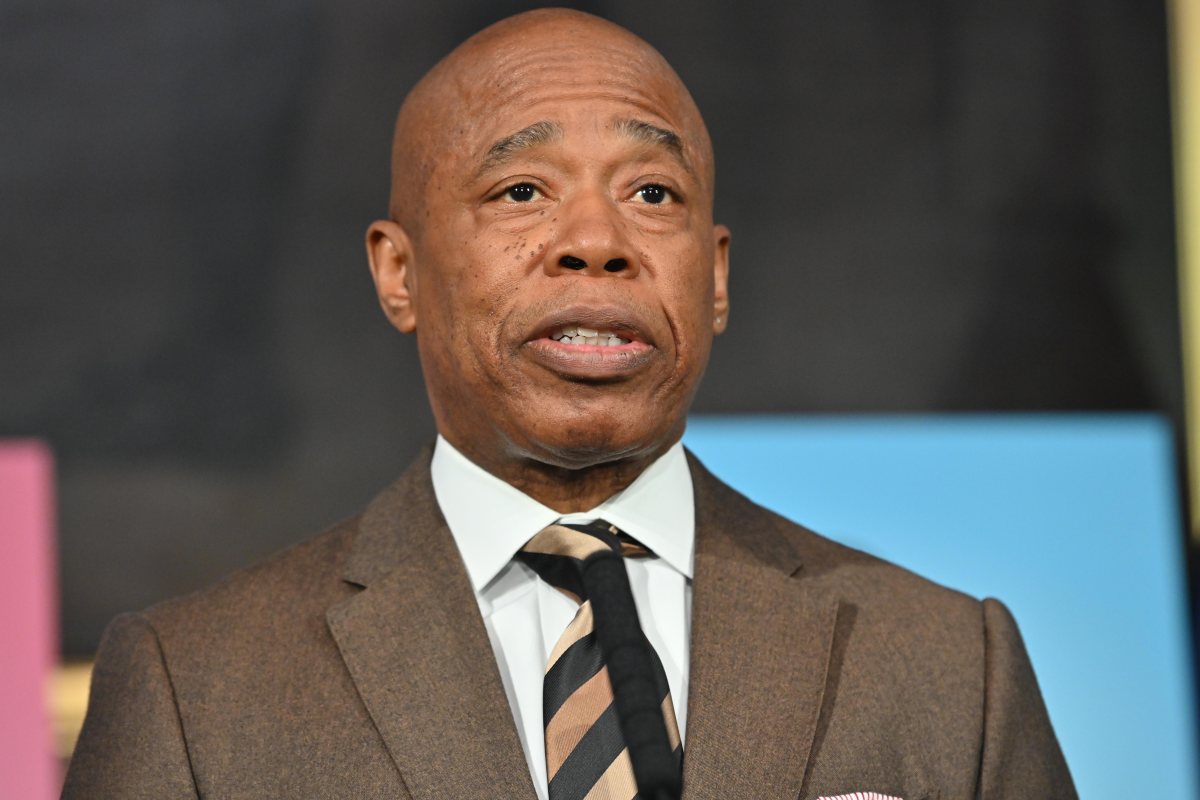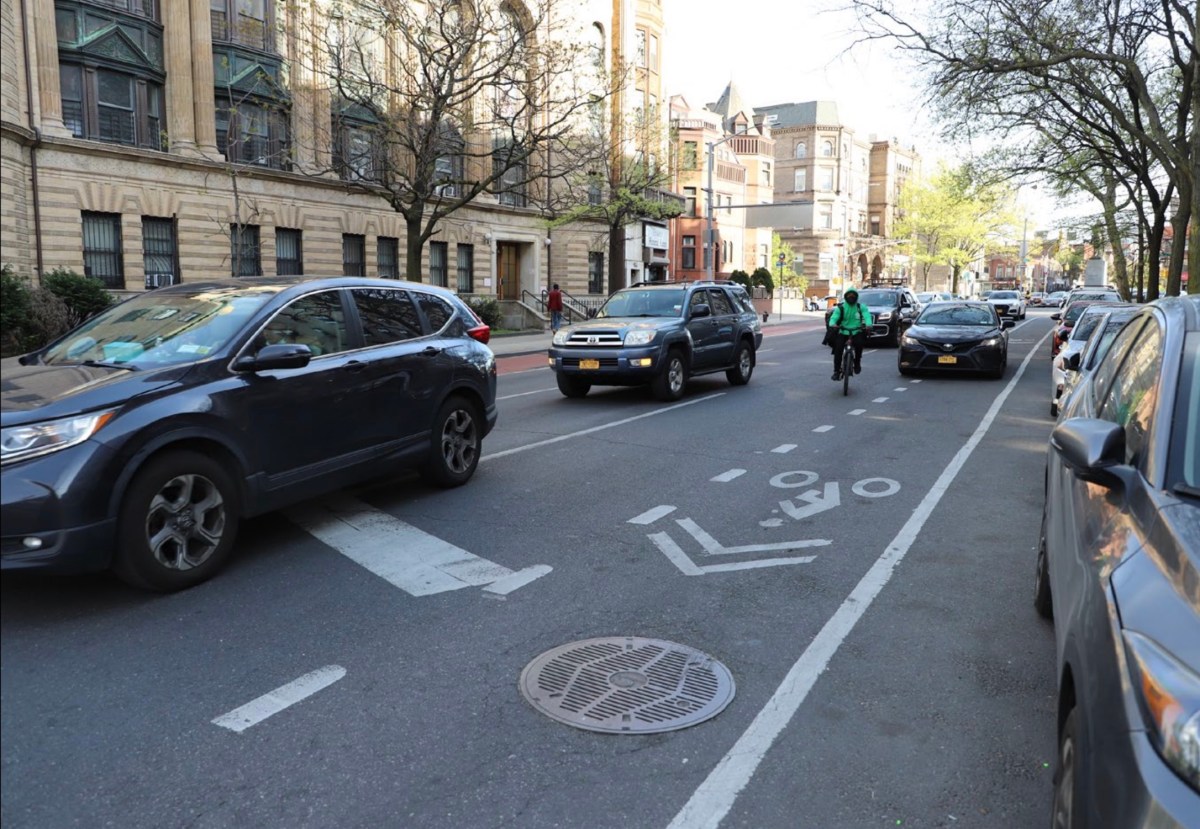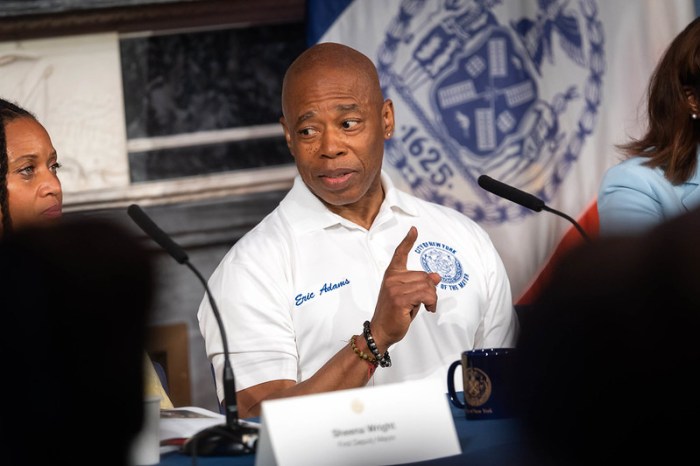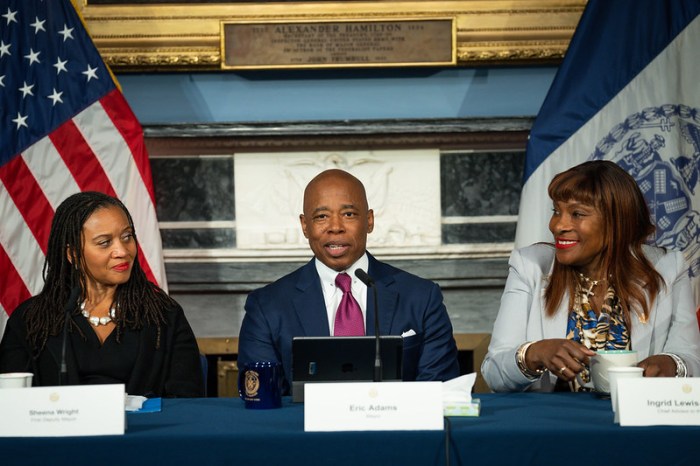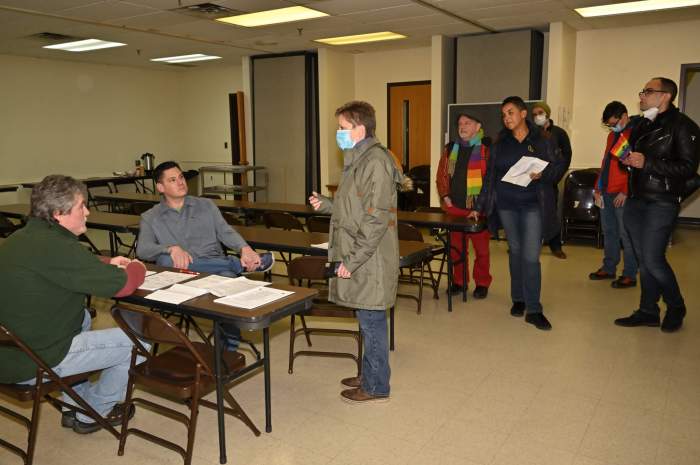Mayor Eric Adams on Tuesday raised concerns about City Council legislation that would relieve most renters from having to pay real estate broker fees, a day before the bill is expected to pass the chamber.
During his weekly off-topic news conference on Nov. 12, Adams said that while he agrees with the premise of the legislation — known as the FARE (Fairness in Apartment Rentals) Act — he believes it will have unintended consequences. The FARE Act, if enacted, would require whomever hires a real estate broker to pay the fee, a cost usually passed onto the tenant.
Proponents of the bill argue that it would eliminate a major upfront financial burden for renters, but Adams contends it would leave landlords having to pay for brokers themselves, and then building that cost into tenants’ monthly rent to make up for the loss.
Hizzoner said that would effectively transform broker fees from a one-time cost into a permanent rent increase for tenants.
“Some of the ideals collide with the reality of the operationalizing implementation,” Adams said. “We got to get it right, make sure that we reach the goals that we’re looking for, and at the same time don’t hurt small property owners and try to get some relief to some of those who are trying to live in the city … I think the bill has the right intention, but sometimes good intentions do not get the results you’re looking for.”

Adams — who has vetoed several major pieces of council legislation since taking office — cast the bill as a “knee-jerk reaction.” Still, he has not indicated whether he will veto the FARE Act if it passes and comes to his desk.
The bill currently has 33 council co-sponsors including Public Advocate Jumaane Williams, who does not get to vote on legislation.
While the 32 voting co-sponsors are two short of a 34-vote super majority needed to override a mayoral veto, council members who do not sponsor a bill often end up voting for it anyway.
Adams said that while he has not communicated with Council Speaker Adrienne Adams on the bill, his director of intergovernmental affairs, Tiffany Rhaspberry, has been in “conversations on both sides of this issue to try and find some middle ground.”
Even so, a council source told amNewYork Metro that the administration has not raised concerns about the bill directly to them.

Brooklyn Council Member Chi Ossé (D), the bill’s prime sponsor, responded to the mayor’s comments Tuesday in a social media post claiming the legislation would not result in tenants paying more in rent, but less. Ossé also blasted the mayor for not fully supporting the measure, minutes after saying that Democrats lost the presidential election to Donald Trump because of the party’s lack of focus on “pocketbook issues.”
“The #FAREAct puts DOWNWARD pressure on rents by increasing bargaining power for tenants. It also saves thousands upfront,” Ossé said. “You can’t say the party’s weakness is pocketbook issues and defend forced broker fees in the same breath. Let’s pass FARE and prove Dems can deliver results.”
Ossé and other proponents of the bill argue that broker fees, which can cost up to 15% of a tenant’s annual rent, are one of many barriers to New Yorkers’ access to housing. The measure comes as the city faces a massive affordable housing shortage, with just 1.4% of apartments available to rent in 2023 — the lowest vacancy rate in more than five decades.
According to survey data compiled by the real estate listings website StreetEasy, 81% of those polled believed that landlords should be responsible for broker fees instead of tenants. Additionally, 76% of renters surveyed said the fees are a barrier to renting an apartment and 60% said the cost stopped them from moving.
Adams’ concerns about the FARE Act broadly mirror those that real estate industry leaders raised at a council hearing on the legislation in June. Real estate honchos also argue passage of the bill would take away renters’ currently available choice of apartments listed with or without broker fees. They claim 50% of advertised rental apartments are listed without a fee.



